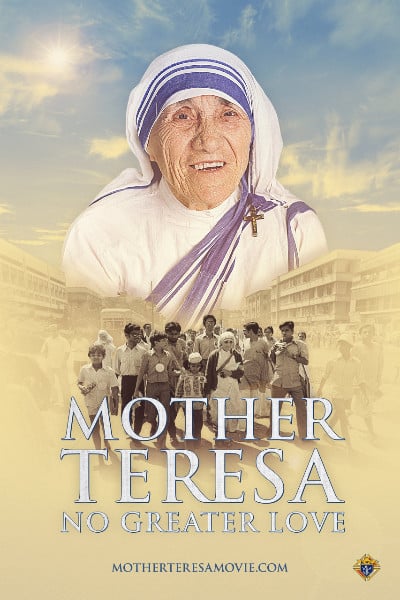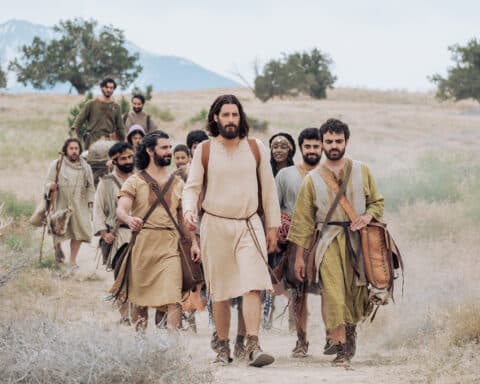I recently watched the film “Mother Teresa: No Greater Love,” written and directed by David Naglieri of the Knights of Columbus. Just when I thought I knew Mother Teresa, I once again discovered her embodiment of the two greatest commandments: “You shall love the Lord your God with all your heart, and with all your soul, and with all your mind. … You shall love your neighbor as yourself'” (Mt 22:37, 39). As we recently celebrated the 25th anniversary of her death, the message of her entire life comes into focus. Mother Teresa saw Jesus in everyone, especially the poorest of the poor. She treated every human being with the same dignity and respect, from the most powerful statesman to the old woman dying in the gutter. She was imbued with Christ and fully lived what St. Paul says is the call of every disciple of Jesus, “yet I live no longer, but Christ lives in me” (Gal 2:20). The Christ in her saw the Christ in everyone. This beautifully crafted film makes that abundantly clear. Her life was Christ.

Mother Teresa’s radical love touched even the hardest of hearts, as Jim Wahlberg attests in the film. Producer, recovering addict and executive director of the Mark Wahlberg Youth Foundation, Jim shares how he grew up starving for love and attention and how he went in search for it on the streets. Consumed with drugs and alcohol and multiple misdemeanors, Wahlberg became a ward of the state by age 12. He shared his incredible story in “The Big Hustle” (OSV, $27.95). During one of his stints in prison, Mother Teresa visited and gave a talk to the inmates. Her words, he says, changed his life. Now a devout Catholic and witness to the power of God’s merciful love, Jim lives what Mother Teresa communicated: “We can turn hate into love.”
Mother Teresa, as the film expresses, loved everyone, including people of all faith traditions. She would say that she sees Jesus in them. She would share her faith without imposition simply by being a lover of Christ and of humanity. Today, as people tout Jesus’ command to “love one another” (Jn 13:34) as a political axiom for their radical agendas, Mother Teresa stands as an authentic example of love. Her 1979 speech at receiving the Nobel Peace Prize minces no words: “The greatest destroyer of peace is abortion.” And she continues, “the poorest nation is the one that legalizes abortion.” In a post-Roe world, where pro-lifers are being attacked, arrested and detained, we need St. Teresa of Calcutta’s intercession more than ever. Only by love is hate destroyed. Love alone wins.
Her message of love can be lived in every time and every circumstance, even outside of the city ghettos. If we all live her message, what a very different world this would be! When we see each human being as Christ, our hardness melts away and compassion takes over. We see the other less as an enemy and more as a fellow human being thirsting for acceptance and love. Mother Teresa says that each of us can be Christ for one another. When we share love, “together we are doing something beautiful for God.”
This film is a meditation on the Christian command to love. St. Teresa of Calcutta’s life was a radical witness of love. She did not need to preach Jesus through words, which she did sometimes even on the world stage, but her example communicated volumes. As Pope St. Paul VI said in Evangelii Nuntiandi, “Modern man readily listens to witnesses than to teachers, and if he does listen to teachers it is because they are witnesses” (No. 41). Mother Teresa is a modern-era witness who became not only a shining candlelight but a powerful lighthouse beam that directs humanity to its purpose, meaning and final end — Christ!
“Mother Teresa: No Greater Love” returns to theaters Nov. 2-3 through Fathom events.
Sister Nancy Usselmann, FSP, is director of the Pauline Center for Media Studies in Los Angeles. She is a media literacy educator, writer, film reviewer, speaker and author of a theology of popular culture, “A Sacred Look: Becoming Cultural Mystics.”





